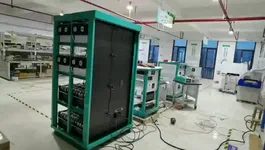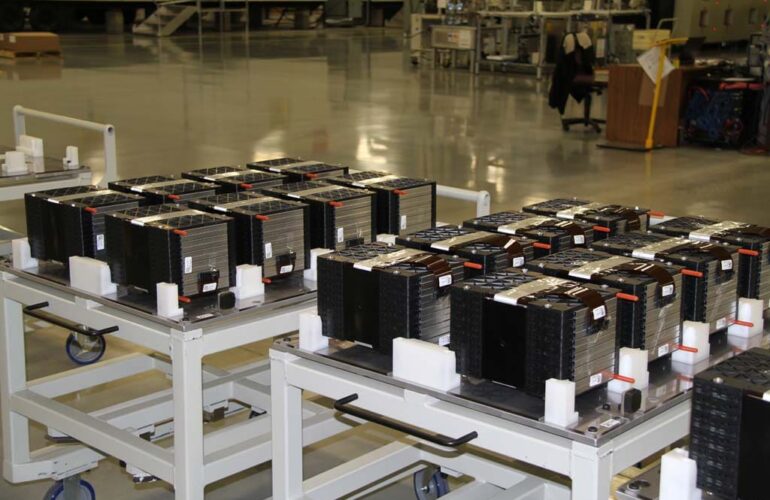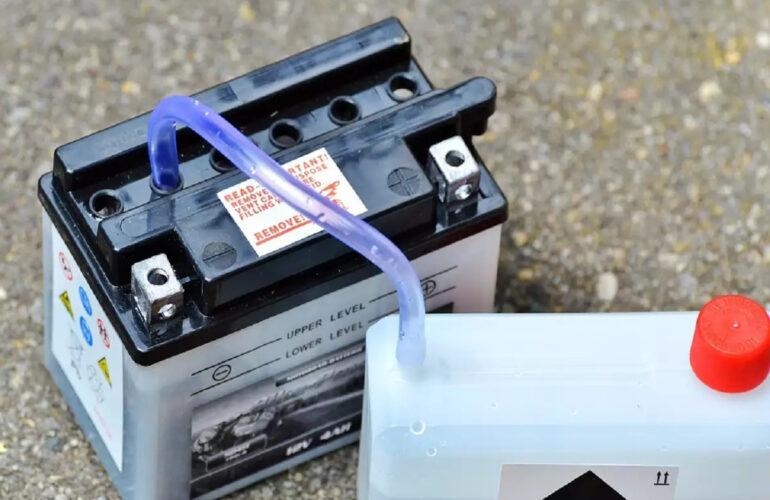Make a fortune in the battery recycling business with complete assistance from Enviroxperts
Package Inclusions :-
General overview of the battery recycling business
Ordinarily, discarding old batteries brings about tremendous stacks of waste in the climate. Also, in spite of the fact that batteries are primarily utilized yet these accompany a few hurtful materials. Thus, discarding them doesn’t sound great. Hence, a superior option for discarding your battery is recycling them. This features the requirement for the battery recycling business.
Overview of battery recycling
The Battery Recycling Business involves the act of going back over and reuse of batteries. The cycle plans to lessen the quantity of batteries disposed of as waste materials. Batteries have different weighty metals and noxious synthetic compounds. Along these lines, their removal has prompted different ecological issues because of soil and water defilement. In that capacity, batteries require recycling to adhere to health and environmental benefits.
Overview of Lead Acid Battery Recycling
Recycling lead-acid batteries are exceptionally productive as is the lead-corrosive battery reusing business. This is because of the great recyclability of parts utilized in the battery. The significant parts utilized are:
This optional lead so got is profoundly recyclable however requires cleaning before its use. Additionally, the rising interest for lead is met by means of this auxiliary lead as it is less expensive than mining new lead. Also, the battery reusing business is definitely less dirtying than mining the mineral. Moreover, with legitimate contamination control measures, it very well may be additionally diminished. Lead-acid battery recycling reusing includes refining and softening the lead and the lead glue from disposed of and drained batteries.
Overview of the Lithium-ion Battery Recycling
The area for Lithium-ion Batteries in India is supposed to fill dramatically in the following five years. Besides, lithium-particle battery reusing is supposed to offer a $1000 million open door by 2030. Nonetheless, India meets its Lithium-ion Battery needs exclusively through imports.
All things considered, setting up the battery reusing business is as yet beneficial as India has a plentiful homegrown wellspring of metals. Right now, under 5% of lithium-particle batteries are reused because of financial and mechanical limitations. In this way, best of all, Lithium Battery Recycling and Reusing will guide us toward a round economy.
Consequently, to advance this and satisfy India’s green objectives, the MoEF&CC (Ministry of Environment, Forest and Climate Change) specified the Battery Waste Management Rules 2020. For sure, the BWM looks for the protected removal of perilous battery wastes and advances a round economy by laying out a battery reusing business. Further, the principles fix the obligations of sellers, makers, purchasers, and substances associated with the isolation, assortment, transportation, reusing and renovation of a wide range of batteries, including lithium-ion and lead acid batteries. The accompanying area portrays these principles exhaustively.
The Battery Waste Management Rules, 2022
Salient features of the BWM Rules
Responsibilities of recyclers
The Battery Waste Management rules characterize a recycler as an element engaged with squander battery reusing. As indicated by the principles, the recycler should consent with certain functions given below –
- It shall be the responsibility of the recycler to –
- Make sure that it conducts any activity as per the guidelines provided by the Central Pollution Control Board (CPCB);
- Apply in Form 2(A) to the State Pollution Control Board (SPCB) to obtain the grant of one-time registration;
- Ensure that other waste delivered while dealing with and reusing exercises be overseen as indicated by the surviving guidelines like Plastic Waste Management Rules, 2016, Solid Waste Management Rules, 2016, and E-waste (Management) Rules, 2016;
- Ensure that Hazardous waste Produced from any action of the battery reusing business is overseen as per the arrangements under Dangerous and Hazardous & Other Wastes (Management & Transboundary Movement) Rules, 2016;
- Ensure that the waste battery is taken out from the gathered gear assuming the battery is remembered for a machine;
- Ensure that recycling units and cycles for waste batteries conform to the rules or principles set by the CPCB.
- All recyclers engaged with the battery reusing business should enroll with the SPCB through the web-based gateway. The endorsement of enrollment should be given in Form 2(B).
- The absolute amount of waste battery handled by the unit associated with squander battery reusing will be made accessible on the website created by CPCB along with the portal of the entities quarterly. In addition, recyclers should present the quarterly returns in Form 4, giving the subtleties on the quantity of waste batteries got or gathered from different units or makers, reused amounts, consistence of material-wise recuperation rate as per the recuperation targets given under sub-rule 4 of rule 10, the amount of risky or/and other waste including plastic or strong waste delivered in the wake of reusing and of such amount as per the current guidelines. Also, the quarterly return should be recorded constantly’s end, succeeding the finish of the quarter.
- Recyclers associated with the battery reusing business should not manage whatever other unit that isn’t enlisted under these principles.
Functions of the lead acid battery recycler
Recyclers engaged with the lead corrosive battery recycling business must perform the following functions -
Provision of certificate for Waste Battery
According to the BWM rules, there is a provision for the certificate for waste batteries which is explained below -
| S. No | Type of Battery | Recovery target for the year (in percentage) | ||
| 2024-25 | 2025-26 | 2026-27 and onwards | ||
| 1. | Portable | 70 | 80 | 90 |
| 2. | Automotive | 55 | 60 | 60 |
| 3. | Industrial | 55 | 60 | 60 |
| 4. | Electric Vehicle | 70 | 80 | 90 |
Other designated roles and responsibilities
Centralised Online Portal
Why is the Battery Recycling Business Important?
The battery recycling business includes handling waste batteries. The point is to guarantee you can reuse them instead of discard them. Without a doubt, this is vital as it diminishes the critical count of inappropriately disposed of batteries.
Additionally, the training safeguards the climate against the hurtful impacts of the harmful substances in disposed of batteries. Furthermore, with reusing, there is less necessity for new battery creation, consequently adding to the world’s material waste.
Documents required by the Waste Battery Recycler
The owner requires the following documents for the Battery Recycling Business -
The Registration Process for the Owner of the Battery Recycling Business
The owner of the battery recycling business must apply on the web portal of the CPCB for filing returns. This must be done within six months of the commencement of the rules.
Process of lead acid battery recycling
Here is a step-by-step process followed by the lead-acid battery recycling businesses -
Collection
Crushing
Sorting
Sieving
In the Mean Time, the plastic materials eliminated from the battery go through washing. The recyclers associated with the battery reusing business then, at that point, send the thermoplastic to plastic recyclers, which go back over them. Thermoplastics are great for making housings for new batteries. Moreover, plastic makers additionally make new plastic items from these thermoplastics.
Extraction Processes
The complete process of recycling lithium-ion batteries
Lithium-ion (Li-ion) batteries are rechargeable batteries widely used in electronics and cars. These batteries share some similarities with lead-acid batteries regarding the recycling process. Following is the detailed process followed by the lithium-ion recycling business.
Smelting
Collection
Sorting
Provision of environmental compensation
- The concerned SPCB forces natural remuneration on substances associated with the battery recycling business. It is additionally forced on the units associated with isolation, assortment and treatment, working in their locale in regards to the non-satisfaction of their commitments and obligations referenced under these guidelines. On the off chance that SPCB doesn’t make a move in two months, the CPCB should teach the SPCB.
- Based on the polluter pays principle, environmental compensation must also be levied for the following activities –
- Giving incorrectly data/purposefully concealing material realities by the units enlisted according to BWM rules;
- Facilities conducting activities without registration;
- Units involved in segregation, collection and treatment regarding not following sound handling of waste battery;
- Submitting manipulated/fake documents by the units.
- The panel framed by CPCB for execution should suggest and plan rules for gathering and burden of ecological remuneration from units and makers associated with squander battery waste in the event of non-satisfaction of rules under BWM rules.
- The assets gathered under natural remuneration should be kept in a different escrow account by CPCB/SPCB. Too,
- The assets will be utilized to gather and reuse nonrecycled and uncollected waste batteries against which environmental remuneration is forced.
- The advisory group will propose modalities for involving the assets for squander battery the executives for execution for the endorsement of the Central Government.
- After finish of three years after ecological pay getting due, the whole sum will be repudiated. This will likewise permit assortment and waste battery recycling by specific entities in later years.
How can Enviroxperts assist you?
| Help in the submission of the required documents | Personalised solutions | Swift redressal of all your doubts |
| Our group figures out the worth of our client’s vision of his business. Consequently, we offer total assistance for the accommodation of the expected records. | We at Enviroxperts offer natural permitting and consistence help all through the excursion of getting a permit for the battery recycling business. | Enviroxperts specialists are celebrated for a fast reaction rate. We guarantee that our correspondence with our clients is consistently brief, energetic and consistent. |




